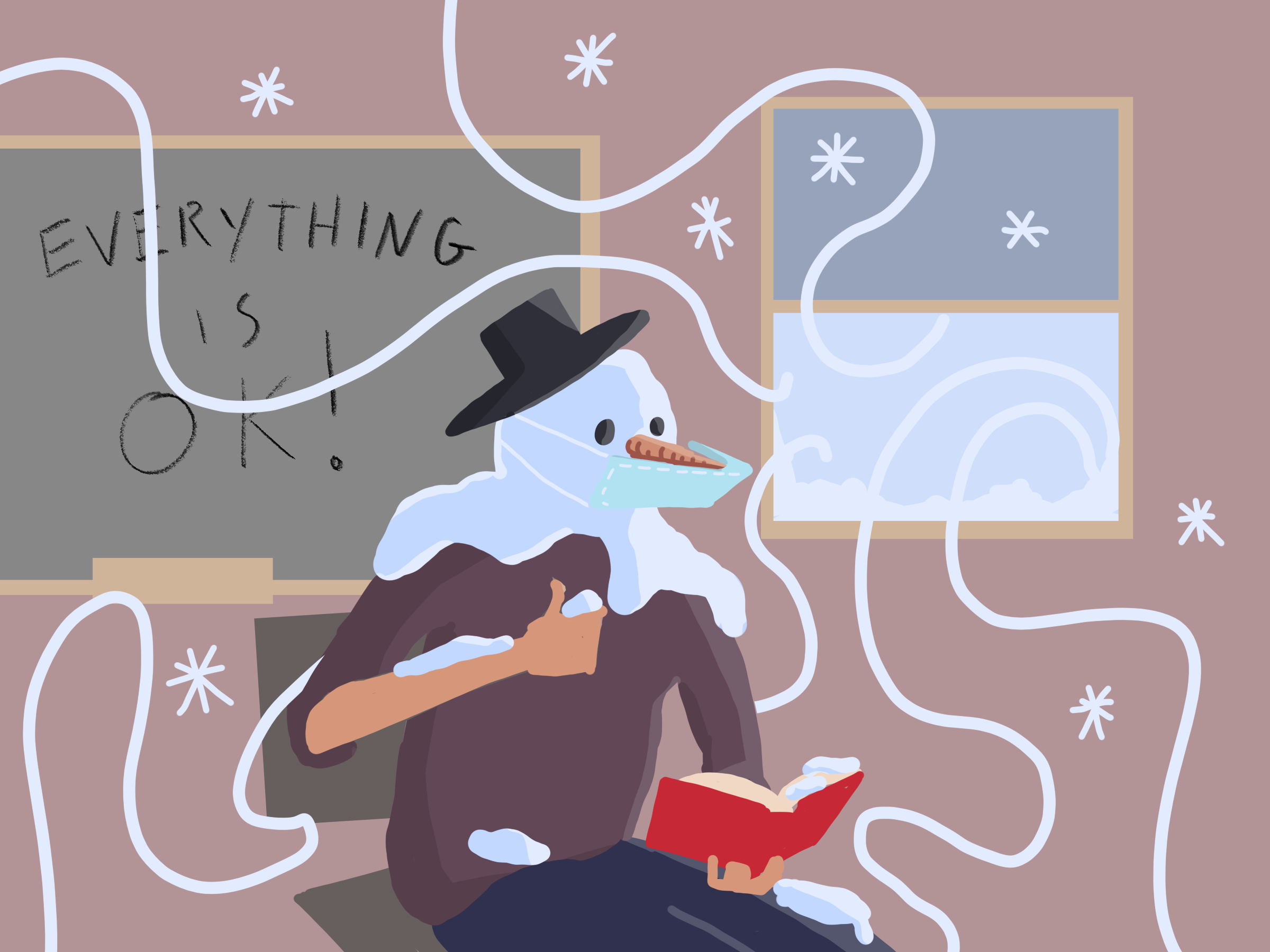With the return to in-person learning, some teachers feel that Minister of Education Jean-François Roberge’s lack of transparency has contributed to providing an unsafe work environment.
Teachers in both the French and English education sectors feel that not enough has been done to ensure a safe return to school now that classes will return in-person, especially amid the highly contagious Omicron variant.
Some say Minister of Education Jean-François Roberge has not provided an effective plan for teachers and students to return to a safe working environment during the pandemic, and feel that the measures put in place are not sufficient in providing a safeguard between students and teachers.
Last year, Roberge didn’t believe that air purifiers were necessary in ensuring better air quality, stating that there was no evidence that correlated poor air quality and COVID outbreaks in schools. He has now backpedalled and instead recommended that teachers keep windows regularly opened, to improve air quality — something he mentioned in a press conference on Jan.5 of this year.
This back and forth in decision-making from the Minister of Education has teachers like MJ, a grade one teacher in Montreal who requested to remain anonymous, feel that they’re not properly represented in what’s best for them. “I think he should resign,” MJ said. “He can’t do the job properly, one day he says something, the other day he says something else. He puts the teachers in a very uncomfortable position.”
Unions like the Fédération autonome de l’enseignement (FAE), which represent 50,000 teachers across Montreal, Gatineau, Laval, and some other regions in Quebec, are also trying to receive clarity from the government. Sylvain Mallette, president of the FAE, feels that the teachers he represents share the same sentiment in wanting more transparency from the Minister of Education when relaying information. “There’s a sort of confusion, it’s not clear, sometimes one thing is said and 48 hours later it’s contradicted,” Mallette added.
The aforementioned press conference with Roberge and former public health director Dr. Horacio Arruda ensured that during the two-week hiatus from in-person learning, the already promised 50,000 CO2 readers will finally be delivered and installed in classrooms across the province while another 40,000 should be received between the months of January and February.
Arruda also highlighted that according to Quebec’s public health experts, N95 masks may not be sufficient due to their lack of comfort and difficulty to speak when worn. Teachers who want to equip themselves with N95 masks will need to do so out of pocket, as the government will not supply them.
A high school teacher who wanted to remain anonymous told The Concordian that they don’t feel that it should be teachers who should supply themselves with the necessary resources to be adequately protected. Their concern is the government’s actions in ensuring the safety of teachers if a return to in-person teaching becomes a reality.
“My biggest concern is that I don’t think my employer is going to supply N95 masks. What worries me is going back to school with Omicron and having a mask that supposedly doesn’t necessarily protect from anything.”
The FAE agrees that teachers should have the right to have N95 masks supplied to them by the government. “We continue to ask the government to supply and provide access to N95 masks,” Mallette said. “We have to assure not only teacher security, but also provide a feeling of security within our schools. If they feel a N95 provides a better feeling of security, they should have the right to wear them,” he added.
Though CO2 readers will ensure readings of the air quality in each room, they will not provide protection against Omicron. For some teachers, the infrastructure of the schools in which they teach are outdated, resulting in some rooms that cannot support air exchangers or even the simple ventilation recommendation by the government of opening a window. “We knew the air quality at our school was poor even before the pandemic. There are some windows that don’t open at our school, so I already didn’t feel safe to begin with,” the anonymous source said.
“The problem isn’t with equipping classes with CO2 detectors, the problem is that even if the detectors read that there are high levels of pollution in the air, there’s nothing to solve the problem at its core,” Mallette said.
According to a 10-year government infrastructure plan, slightly over half (54 per cent) of Quebec schools have dated infrastructure, resulting in not only poor air quality and ventilation but a poor condition overall.
Mallette and the FAE believe that there could be alternative methods for repairing the air quality in schools, regardless of their condition. “I’m sorry, but if the human race was able to land on the moon and travel through space, we should be able to find ways to install air exchangers in our older schools,” said Mallette.
Ottawa gave Quebec 432 million dollars to improve air quality and increase hygiene measures across schools in Quebec. However, the provincial government has not been transparent about where the rest of the money was spent.
“The government is still refusing to provide further detail on where the money went except for what the education minister has said,” said Mallette.
For now, the FAE will continue to request information to try and obtain a justification for the decisions made but to also track the federally-funded money. However, the process of requesting that information is receiving heavy pushback from the government.
“We’re requesting information through access to information (ATI) requests, and we’re not getting anything. The Minister of Health is playing a hand in delaying our requests by contesting our demands so we’re still not able to obtain that information.”
Graphics by James Fay
